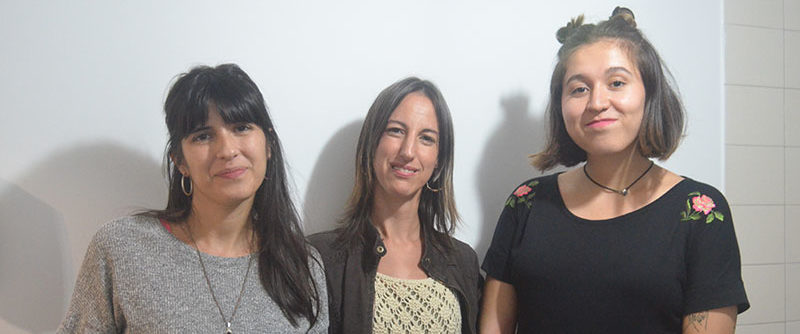Women’s Month: three stories to pay tribute to #MujeresUTNBA
In the context of women’s day, UTNBA decided to share the stories of a graduate, a student and a non-faculty member to pay homage to women.

Industrial Eng. Alejandra Vázquez, UTN Buenos Aires graduate, is Responsible for the Technological Voluntary Service which is part of the University Social Commitment (USC) Area and it is a graduate representative of the Advisory Committee for the Protocol on Gender-Based Violence; Catalina Marinero is in the third year of the Chemical Engineering undergraduate program; and Mercedes Calzón Flores holds a diploma in Political Science and has been part of the Culture Office team for the past three years. Through them, UTNBA honored women on their day.
“I started studying at UTNBA because of a friend who was studying at the School and recommended Industrial Engineering, because she thought that it was related to what I wanted to do,” Vázquez explained.
After visiting different universities, “I chose UTNBA because I knew people studying there and because of the support. Engineering allows you to choose what to specialize in after you graduate and in which sector to work.”
During her studies, she always felt supported both by the School and her group of friends: “attending courses for 5 years with the same friends also helps you not to quit. You grow up and develop together with them.”
In Catalina Marinero’s words “UTN Buenos Aires was always my first option because a high school teacher recommended it to me. He encouraged me to study chemistry. I met many students who recommended this Engineering School. The personal attention you are given even before being admitted determined my choice. Everyone who is part of UTNBA is passionate about it,” she stated.
“This School goes beyond study itself –she added–. While teachers constantly encourage you to study, they also seek to train good engineers from the social and personal perspective.”
Mercedes Calzón Flores holds a diploma in Political Science and she is working on her final research work to graduate in Education Technology. “My parents are lawyers, so that was an alternative but I wasn’t certain. Then I decided to try Political Science, a vast course, with a variety of content,” she explained.
In 2008, she started working at UTNBA, in the Visual Learning Department, within the Culture and University Outreach Office (in Spanish, SCEU). She then worked as Coordinator of the Digital Inclusion Program and for the past three years she has been part of the Culture Office team.
The difficulties faced by women when adapting personal life to professional life are diverse. The challenge of facing the prejudices there are on women studying hard sciences or how to combine maternity with a professional career are problems they face every day. “We shouldn’t have to choose between family and work,” Vázquez pointed out.
In this sense, Marinero recalled that she was asked many times if she believed that he would be able to finish her studies.
Calzón Flores concluded that although “I was never asked why I had chosen Political Science being a woman, people would ask me what I was going to do for life.”



